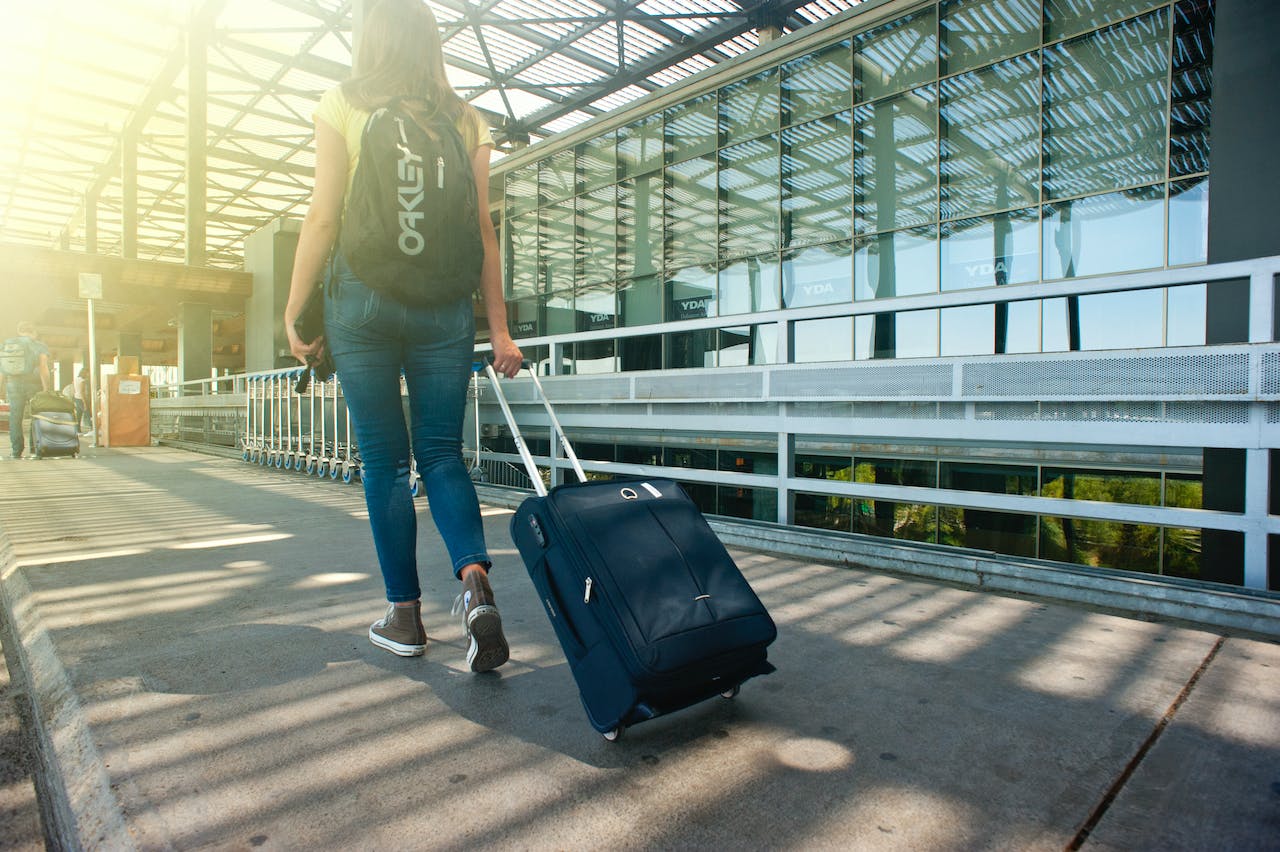Traveling can be an exhilarating experience, opening the door to new cultures, cuisines, and adventures. However, amidst the excitement, it’s crucial to prioritize your health. Being on the road often disrupts routines and exposes you to different environments, which can challenge your well-being. Here’s a comprehensive guide to staying healthy while you embrace the joys of traveling.
1. Plan Ahead for Nutrition
Maintaining a healthy diet while traveling can be challenging, but with a little foresight and planning, you can ensure that your nutritional needs are met, keeping you energized and healthy throughout your journey.
Research Local Cuisine: Before you set off, do some research on the local cuisine of your destination. This can give you an idea of the healthy options available. Many places have unique, nutritious dishes that are a delight to explore.
Consider Dietary Restrictions: If you have specific dietary restrictions or preferences, such as being vegetarian, vegan, or gluten-free, look for restaurants that cater to these needs. Knowing a few places in advance can relieve the stress of finding suitable food options on arrival.
Smart Snacking: Choose snacks that are high in protein and fiber to keep you fuller for longer. Think almonds, yogurt, whole grain crackers, or fruit. Avoid high-sugar and high-salt snacks, as they can lead to energy crashes and increased thirst.
Portable Meal Options: Consider packing or purchasing portable meal options like protein bars, instant oatmeal cups, or trail mix. They can be particularly useful during long transit times or when you have limited access to restaurants.
Stay Balanced: Try to maintain a balance in your meals. If you indulge in a heavy meal, balance it out with a lighter one next time. This approach can help you enjoy local delicacies without compromising on nutrition.
Monitor Portion Sizes: Be mindful of portion sizes, especially in places known for serving large portions. Eating too much, especially of unfamiliar foods, can lead to discomfort and digestive issues.
Stay Flexible but Mindful: While it’s important to enjoy your travel experience, including the culinary aspects, staying mindful of your food choices will help you maintain energy levels and overall health during your travels.
By planning ahead and making informed choices, you can enjoy the diverse flavors of your destination while keeping your nutrition on track. Remember, a healthy diet is an integral part of a happy and fulfilling travel experience.
2. Stay Hydrated
Staying hydrated is vital, especially if you’re traveling to warmer climates or at higher altitudes. Always carry a reusable water bottle with you. While it’s tempting to indulge in local drinks, moderation is key. Excessive alcohol and caffeine can lead to dehydration and disrupt sleep patterns.
3. Prioritize Sleep
Try to stick to a regular sleeping schedule. Jet lag can be a challenge, but maintaining a routine helps your body adjust quicker. Bring items that help you sleep, like a travel pillow or an eye mask. Try to create a quiet, dark, and comfortable sleeping environment.
4. Stay Active
One of the best ways to discover a new place is on foot. Walking not only provides exercise but also lets you see things you might miss otherwise. If your accommodation has a gym or pool, take advantage of these facilities to keep up with your fitness routine.
5. Practice Good Hygiene
Maintaining good hygiene is crucial when traveling, as it significantly reduces the risk of falling ill. Different environments expose you to unfamiliar germs and bacteria, making it important to be diligent about hygiene practices. Here are some ways to ensure you stay healthy and hygienic during your travels:
Regular Hand Washing: Hand washing is the most effective way to prevent the spread of germs. Wash your hands with soap and water before eating, after using the restroom, and after touching public surfaces like door handles or railings. If soap and water are not available, use a hand sanitizer with at least 60% alcohol.
Use Sanitizing Wipes: Carry sanitizing wipes to clean your hands as well as surfaces you’re about to touch, such as airplane tray tables, seat armrests, or hotel room doorknobs. This can be especially important in high-traffic areas where cleaning practices might vary.
Be Cautious with Public Water Sources: In some destinations, the water quality may not be up to the standard you’re accustomed to. Use bottled water for drinking and brushing your teeth, and avoid ice in drinks unless you’re sure it’s made from purified water.
Food Safety: Exercise caution with street food or any food that has been sitting out in the open. Ensure your food is freshly cooked and served hot. Avoid raw fruits and vegetables unless you can peel them yourself.
Personal Hygiene Items: Always use your own personal hygiene items like toothbrushes, towels, and razors. Sharing these items can transfer germs and bacteria.
Avoid Touching Your Face: Try to avoid touching your face, particularly the eyes, nose, and mouth, as these are common entry points for germs into the body.
Cover Your Mouth When Coughing or Sneezing: Practice good respiratory hygiene by covering your mouth with your elbow when coughing or sneezing. This helps prevent the spread of respiratory diseases.
Dispose of Trash Properly: Properly dispose of any used tissues or wipes. Leaving trash behind can contribute to the spread of germs and is also environmentally irresponsible.
Clean Your Travel Gear: Regularly clean items you frequently use, such as your phone, camera, or backpack. These items can harbor bacteria and viruses, so keeping them clean helps reduce the risk of contamination.
By practicing these hygiene habits, you can significantly lower your risk of illness and ensure a more enjoyable and healthy travel experience. Remember, good hygiene is not just about personal health; it’s also a matter of public health and respecting the communities you visit.
6. Protect Your Skin
Regardless of the weather, applying sunscreen is essential to protect your skin from harmful UV rays. Wear protective clothing, hats, and sunglasses, especially if you’re going to be outdoors for extended periods.
7. Manage Stress
Traveling can sometimes be stressful. Make time for activities that help you relax, whether it’s reading, meditating, or just taking a leisurely walk. Things might not always go as planned. Being flexible and maintaining a positive attitude can significantly reduce travel stress. You can read our 7 Great Reasons to Start Traveling Right Away to know more about the mental and emotional benefits of traveling.
8. Stay Prepared with a Travel Health Kit
Pack a basic health kit that includes first aid supplies, prescription medications, and any over-the-counter medications you might need.
9. Keep in Touch
Stay connected with friends and family. Sharing your experiences can boost your mood and help you feel less isolated if you’re traveling alone.
Additional Tips
- From airports to hotels, services like Hobby Airport Transportation you can avoid
- Keep an alcohol-based (at least 60%) hand sanitizer on your person
Final Thoughts
Traveling is one of life’s greatest pleasures, but it shouldn’t come at the cost of your health. By planning ahead, staying active, eating well, and taking care of your mental and physical health, you can ensure a fulfilling and healthy travel experience. Remember, the goal is to come back home with wonderful memories, not a compromised well-being. So, pack your bags, but don’t leave your healthy habits behind!


